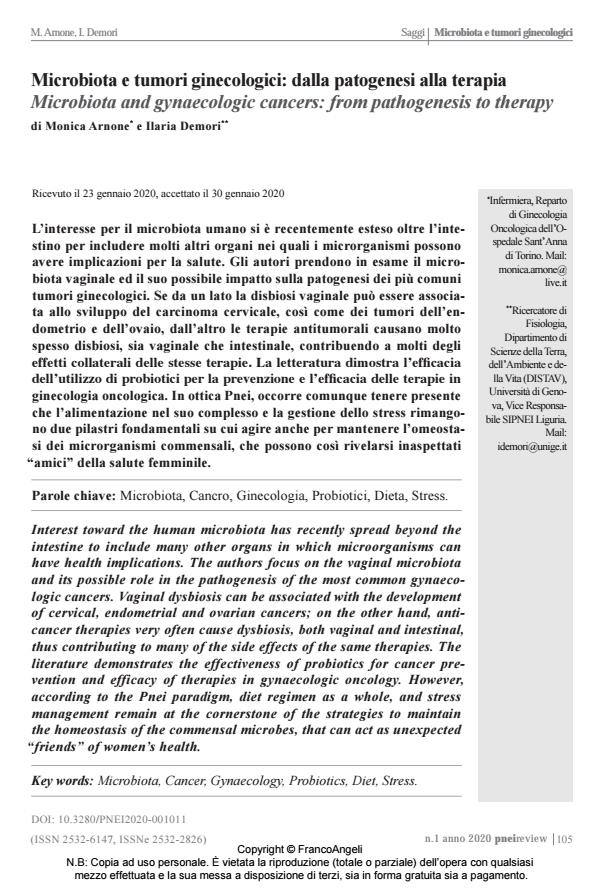Microbiota and gynaecologic cancers: from pathogenesis to therapy
Journal title PNEI REVIEW
Author/s Monica Arnone, Ilaria Demori
Publishing Year 2020 Issue 2020/1
Language Italian Pages 14 P. 105-118 File size 187 KB
DOI 10.3280/PNEI2020-001011
DOI is like a bar code for intellectual property: to have more infomation
click here
Below, you can see the article first page
If you want to buy this article in PDF format, you can do it, following the instructions to buy download credits

FrancoAngeli is member of Publishers International Linking Association, Inc (PILA), a not-for-profit association which run the CrossRef service enabling links to and from online scholarly content.
Interest toward the human microbiota has recently spread beyond the intestine to include many other organs in which microorganisms can have health implications. The authors focus on the vaginal microbiota and its possible role in the pathogenesis of the most common gynaecologic cancers. Vaginal dysbiosis can be associated with the development of cervical, endometrial and ovarian cancers; on the other hand, anticancer therapies very often cause dysbiosis, both vaginal and intestinal, thus contributing to many of the side effects of the same therapies. The literature demonstrates the effectiveness of probiotics for cancer prevention and efficacy of therapies in gynaecologic oncology. However, according to the Pnei paradigm, diet regimen as a whole, and stress management remain at the cornerstone of the strategies to maintain the homeostasis of the commensal microbes, that can act as unexpected "friends" of women’s health.
Keywords: Microbiota, Cancer, Gynaecology, Probiotics, Diet, Stress.
Monica Arnone, Ilaria Demori, Microbiota e tumori ginecologici: dalla patogenesi alla terapia in "PNEI REVIEW" 1/2020, pp 105-118, DOI: 10.3280/PNEI2020-001011